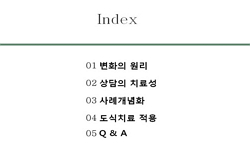The purpose of this article was to develop the Cognitive & Affective Learning Style Inventory for university students(CALSIU), to prove the validation of the inventory, and reestablish the conceptual model. The factors and items of this inventory were...
http://chineseinput.net/에서 pinyin(병음)방식으로 중국어를 변환할 수 있습니다.
변환된 중국어를 복사하여 사용하시면 됩니다.
- 中文 을 입력하시려면 zhongwen을 입력하시고 space를누르시면됩니다.
- 北京 을 입력하시려면 beijing을 입력하시고 space를 누르시면 됩니다.

대학생용 인지적,정의적 학습양식 검사지 개발 및 타당화 = Developing and Validating of the Cognitive & Affective Learning Style Inventory for University Students
한글로보기https://www.riss.kr/link?id=A100542946
- 저자
- 발행기관
- 학술지명
- 권호사항
-
발행연도
2015
-
작성언어
-
- 주제어
-
KDC
300
-
등재정보
KCI등재
-
자료형태
학술저널
-
수록면
25-48(24쪽)
-
KCI 피인용횟수
0
- 제공처
-
0
상세조회 -
0
다운로드
부가정보
다국어 초록 (Multilingual Abstract)
The purpose of this article was to develop the Cognitive & Affective Learning Style Inventory for university students(CALSIU), to prove the validation of the inventory, and reestablish the conceptual model. The factors and items of this inventory were categorized and developed based on the conceptual model of E. J. Kim(2008). 58 items for testing were performed with 1,229 students of 9 universities in 5 regions, Seoul, Daejeon, Daegu, Jeonju, Chungnam. Test results were explored by exploratory factor analysis and confirmatory factor analysis. The drawn conclusions were the following as : First, CALSIU consists of 8 factors with 32 items. 4 cognitive factors are information perception, information processing, information storage & recall, and a non-academic element. 4 affective factors are an attitude of inter-relationship among members and teacher, an attitude of accepting information, a degree and a way of participation in teaching & learning. Secondly, the items of inventory shows the traits of the 8 factors. Each cognitive element shows the traits of Sensing/Intuitive, Analytic/Holistic, Surface/Deep types. A nonacademic element is be to do with Roughly/Only key words. Each affective element shows the traits of Independent/Dependent, Open/Closed, Trail/Observing, Participating/Avoiding types. Thirdly, the model fit, TLI, CFI, RMSEA was satisfied with the standard through confirmatory factor analysis. Hence it was proved that CALSIU based on the conceptual model was valid and reliable.
참고문헌 (Reference)
1 성태제, "현대기초통계학의 이해와 적용" 교육과학사 2005
2 강혜원, "학업에 대한 성패귀인, 자기효능 및 내적동기와 대학생활 적응의 관계" 12 (12): 85-107, 1998
3 김은정, "학습유형과 학습양식의 체계적 분류를 통한 개념적 모형 정립" 한국교육학회 40 (40): 6-133, 2002
4 김은정, "학습양식의 유형 및 구성요소와 교육과정과의 관계에 대한 연구" 연세대학교 대학원 2000
5 이태종, "학습양식에 입각한 교수-학습방법" 7 : 89-105, 2004
6 임창재, "학습양식" 형설출판사 1994
7 이경아, "학습 성격 유형 및 전공 만족도에 따른 학업성취 관련 변인에 관한 연구" 한국상담심리학회 16 (16): 107-121, 2004
8 김양분, "학생용 및 학부모용 학교 교육 만족도 조사 도구 개발" 한국교육평가학회 20 (20): 1-27, 2007
9 김은정, "출신 고등학교 유형에 따른 대학생의 인지적ㆍ정의적 학습양식 특성 비교" 85-106, 2014
10 김은정, "초등학생용 인지적ㆍ정의적 학습양식 검사도구의 개발 및 타당화" 한국초등교육학회 21 (21): 259-279, 2008
1 성태제, "현대기초통계학의 이해와 적용" 교육과학사 2005
2 강혜원, "학업에 대한 성패귀인, 자기효능 및 내적동기와 대학생활 적응의 관계" 12 (12): 85-107, 1998
3 김은정, "학습유형과 학습양식의 체계적 분류를 통한 개념적 모형 정립" 한국교육학회 40 (40): 6-133, 2002
4 김은정, "학습양식의 유형 및 구성요소와 교육과정과의 관계에 대한 연구" 연세대학교 대학원 2000
5 이태종, "학습양식에 입각한 교수-학습방법" 7 : 89-105, 2004
6 임창재, "학습양식" 형설출판사 1994
7 이경아, "학습 성격 유형 및 전공 만족도에 따른 학업성취 관련 변인에 관한 연구" 한국상담심리학회 16 (16): 107-121, 2004
8 김양분, "학생용 및 학부모용 학교 교육 만족도 조사 도구 개발" 한국교육평가학회 20 (20): 1-27, 2007
9 김은정, "출신 고등학교 유형에 따른 대학생의 인지적ㆍ정의적 학습양식 특성 비교" 85-106, 2014
10 김은정, "초등학생용 인지적ㆍ정의적 학습양식 검사도구의 개발 및 타당화" 한국초등교육학회 21 (21): 259-279, 2008
11 박용휘, "초등학교 고학년용 자기 주도적 학습능력 진단척도의 타당화" 한국교원대학교 2003
12 박성미, "전문대학생을 위한 학습전략 진단 도구의 개발" 한국수산해양교육학회 21 (21): 16-27, 2009
13 여상희, "일개 의과대학 의학과 학생의 학습양식" 한국의학교육학회 18 (18): 31-40, 2006
14 김미라, "의과대학생의 학습양식의 특성과 학업성취와의 관계" 한국의학교육학회 18 (18): 133-140, 2006
15 강승호, "대학생의 학업성취와 중도탈락 생각에 영향을 미치는 변인 분석" 한국교육평가학회 23 (23): 29-53, 2010
16 김연희, "대학생의 학습전략이 학업성취도에 미치는 영향" 한국열린교육학회 19 (19): 177-196, 2011
17 윤정선, "대학생을 위한 자기주도학습 능력 향상 프로그램의 중재 및 효과" 한국정서·행동장애아교육학회 30 (30): 119-141, 2014
18 이혜원, "대학생용 정의적․사회적 학습양식 진단도구 개발 및 타당화" 교육연구소 14 (14): 209-229, 2013
19 홍세희, "구조방정식 모형에 있어서 적합도 선정 기준과 그 근거" 19 : 161-177, 2000
20 김은정, "교육대학교 학생의 학습유형에 따른 학습전략의 특성" 3 (3): 21-37, 2012
21 김은정, "공주교육대학교 남녀 대학생 인지적․정의적 학습유형 특성" 49 (49): 155-167, 2012
22 안정호, "공대생들의 협동학습에서 학습양식유형 및 셀프리더십과 팀 수행" 한국공학교육학회 14 (14): 9-14, 2011
23 오영희, "고등학생들의 학업부정행위에 대한 지각, 경험, 관련 변인 분석 연구" 한국교육심리학회 17 (17): 1-25, 2003
24 Dunn R., "Understanding the Dunn and Dunn learning styles model and the need for individual diagnosis and prescription" 6 : 223-247, 1990
25 Entwistle, N. J., "Understanding student learning" Croom Helm 1983
26 Felder, R. M., "Understanding Student Differences" 94 (94): 57-72, 2005
27 Biggs, J. B., "The role of meta learning in study progress" 55 : 185-212, 1985
28 Keffe, J. W., "The purpose and significance of the NASSP learning style profile"
29 Biggs, J. B., "The process of learning" Prentice Hall 1993
30 Kolb, D. A., "The Kolb Learning Style Inventory, Version 3" Hay Group 1999
31 McCarthy, B., "The 4MAT System: Teaching to Learning Styles with Right/Left Mode Techniques" Excel, Inc 1981
32 Pask, G., "Styles and strategies of learning" 46 : 128-148, 1976
33 Dunn, R., "Student learning styles: Diagnosing and Prescribing Programs" NASSP 1979
34 Netmeyer, R. G., "Scaling Procedures: Issues and Applications" Sage 2003
35 성태제, "SPSS/AMOS를 이용한 알기 쉬운 통계분석 -기술통계에서 구조방정식 모형까지-" 학지사 2008
36 Plovnick, M., "Primary care career choices and medical student learning styles" 50 : 849-855, 1975
37 Marton, F., "On qualitative differences in learning Ⅱ-Outcome as a function of the learner's conception of the task" 46 : 115-127, 1976
38 Marton, F., "On qualitative differences in learning : Ⅰ-Outcome and process" 46 : 4-11, 1976
39 Myers, I. B., "Manual: A guide to the development and use of the Myers-Briggs type indicator" Consulting Psychologists Press 1985
40 Dunn, R., "Learning styles inventory" Price Systems 1984
41 Reading-Brown, M., "Learning style - liberal arts and technical training: What's the difference?" 64 : 507-518, 1989
42 Schmeck, R. R., "Learning strategies and learning styles" Plenum Press 1988
43 Entwistle, N. J., "Learning strategies and learning styles" Plenum Press 1988
44 Pask, G., "Learning strategies and individual competence" 4 : 217-253, 1972
45 Felder, R. M., "Learning and teaching styles in Engeneering Education" 78 (78): 674-681, 1988
46 Kolb, D. A., "Learning Style Inventory. LSI-Ⅱa" McBer & Company 1993
47 Willcoxson, L., "Kolb's learning style inventory: Review and further study of validity and reliability" University Melbourne 1995
48 Biggs, J. B., "Individual and group differences in study processes" 48 : 266-279, 1978
49 Felder, R. M., "Index of Learning Styles"
50 Schmeck, R. R., "Development of a self-report inventory for assessing individual differences in learning processes" 1 : 413-431, 1977
51 Richardson, J. T. E., "Cultural specificity of approaches to studying in higher education: a literature survey" 27 : 449-468, 1994
52 Pask, G., "Conversational techniques in the study and practice of education" 46 : 12-25, 1976
53 Felder, R. M., "Authors preface: Learning and teaching styles in Engineering Education" 78 (78): 681-, 2002
54 Gibb, B. E., "Attributional styles and academic achievement in university students : A longitudinal investigation" 26 (26): 309-315, 2002
55 Entwistle, N. J., "Approaches to studying and preferences for teaching in higher education" 14 : 2-10, 1994
56 Felder, R. M., "Applications, reliability and validity of the index of learning styles" 21 (21): 103-112, 2005
57 Riechmann, S. W., "A rational approach to developing and assessing the construct validity of a student learning style scales instrument" 87 : 213-223, 1974
동일학술지(권/호) 다른 논문
-
초등학교 안전교육에 대한 연구동향 분석; 연구의 추세와 과제를 중심으로
- 한국초등교육학회
- 강신원 ( Shin Won Kang )
- 2015
- KCI등재
-
융합인재교육(STEAM)에서 반성적 실천(reflective practice)에 기반한 학습자 자기평가활동 모형 개발: 프로젝트기반 STEAM수업을 중심으로
- 한국초등교육학회
- 김현미 ( Hyun Mi Kim )
- 2015
- KCI등재
-
교사가 지각한 학급 내 학생의 문제행동이 교사의 소진에 미치는 영향: 감정노동의 매개효과를 중심으로
- 한국초등교육학회
- 박대준 ( Dae Jun Park )
- 2015
- KCI등재
-
초등교사의 영어교육 경력에 따른 영어교육 전문성 인식 연구
- 한국초등교육학회
- 송미사 ( Mi Sa Song )
- 2015
- KCI등재
분석정보
인용정보 인용지수 설명보기
학술지 이력
| 연월일 | 이력구분 | 이력상세 | 등재구분 |
|---|---|---|---|
| 2027 | 평가예정 | 재인증평가 신청대상 (재인증) | |
| 2021-01-01 | 평가 | 등재학술지 유지 (재인증) |  |
| 2018-01-01 | 평가 | 등재학술지 유지 (등재유지) |  |
| 2015-01-01 | 평가 | 등재학술지 유지 (등재유지) |  |
| 2011-01-01 | 평가 | 등재학술지 유지 (등재유지) |  |
| 2009-01-01 | 평가 | 등재학술지 유지 (등재유지) |  |
| 2007-01-01 | 평가 | 등재학술지 유지 (등재유지) |  |
| 2004-01-01 | 평가 | 등재학술지 선정 (등재후보2차) |  |
| 2003-01-01 | 평가 | 등재후보 1차 PASS (등재후보1차) |  |
| 2001-07-01 | 평가 | 등재후보학술지 선정 (신규평가) |  |
학술지 인용정보
| 기준연도 | WOS-KCI 통합IF(2년) | KCIF(2년) | KCIF(3년) |
|---|---|---|---|
| 2016 | 1.84 | 1.84 | 1.82 |
| KCIF(4년) | KCIF(5년) | 중심성지수(3년) | 즉시성지수 |
| 1.82 | 1.8 | 2.264 | 0.23 |





 KISS
KISS





